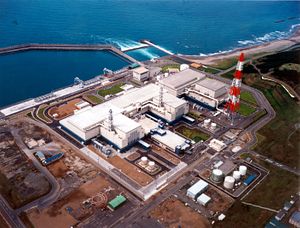In the face of concerns about Japan’s reliance on imported fossil fuels and natural gas, the Abe Administration has been working to reboot segments of the nuclear energy program over the past year. According to World Nuclear News, the Kyūshū Electric Power Company is expected to complete the restart of the Sendai 1 nuclear reactor this August, which will reintroduce nuclear power to Japan’s electric grid for the first time since 2013.
As debates continue over safety precautions and the government’s continued cleanup, efforts at Fukushima, Japan’s nuclear industry also faces the existing (and soon-to-be expanding) problem of nuclear waste disposal.
Although debates on nuclear power focus largely on the dangers of meltdown or natural disasters, emphasis on these issues can overshadow the increasingly significant problem of nuclear waste management. Unlike forms of ordinary metal or plastic waste, high-level nuclear material takes thousands of years to decompose. According to the International Atomic Energy Agency (IAEA), the scientific community generally agrees that high-level wastes should be contained within underground geologic formations in repositories.
Founded in 2000, the Nuclear Waste Management Organization of Japan (NUMO) set out to conduct research on the development of a deep geological repository for the long-term storage of Japan’s nuclear waste. In a message on the organization’s English-language webpage, recently appointed NUMO President Shunsuke Kondo explains the program’s objective:
In order to select sites suitable for the repositories, NUMO has made efforts since 2002 to develop an environment in which municipalities would volunteer to accept the investigation of appropriateness of parts of their land for the repository and the general public would support such actions of municipalities. However, such an environment has not been developed yet.
While NUMO conducts extensive research on waste storage and deep geological repositories, Japan’s government has not yet designated or constructed any such facility. Bloomberg Business recently reported that nearly all of Japan’s 17,000 metric tons of high-level waste will remain in temporary on-site storage at nuclear power plants. As Sendai 1 and other nuclear reactors are scheduled to restart in the coming months, these stockpiles of environmental toxins will continue to grow.
Although Japan’s problem of nuclear waste disposal will grow with the nuclear reboot, every nation using nuclear power faces the same long-term storage dilemma. In fact, the IAEA acknowledges that only Finland, Sweden and the United States have broken ground on projects with the technological and geological capacity for long-term waste storage. While Finland’s Onkalo Repository remains under construction, the United States defunded a similar project in 2011. Development of the Yucca Mountain Repository project, located on federal lands in Nevada, was canceled by the Obama Administration following contentious political battles over safety implications and the government’s authority to build the facility.
Japan’s challenge in the coming years will be to identify a waste management solution that avoids political conflicts like those that derailed the Yucca Mountain project. Perhaps Japan’s political system will fulfill NUMO’s promise and facilitate an engaging, participatory process of site selection and facility construction. However, given the often glacial pace of development associated with these projects, in addition to their politically contentious nature, NUMO’s plans may remain a pipe dream for many years. Until the government breaks ground on a storage facility, toxic waste may indefinitely remain on-site at power plants throughout Japan.
Logan Pettinato is an undergraduate student at Bates College studying Political Science and History. He is currently interning at the EastWest Institute in New York.

































